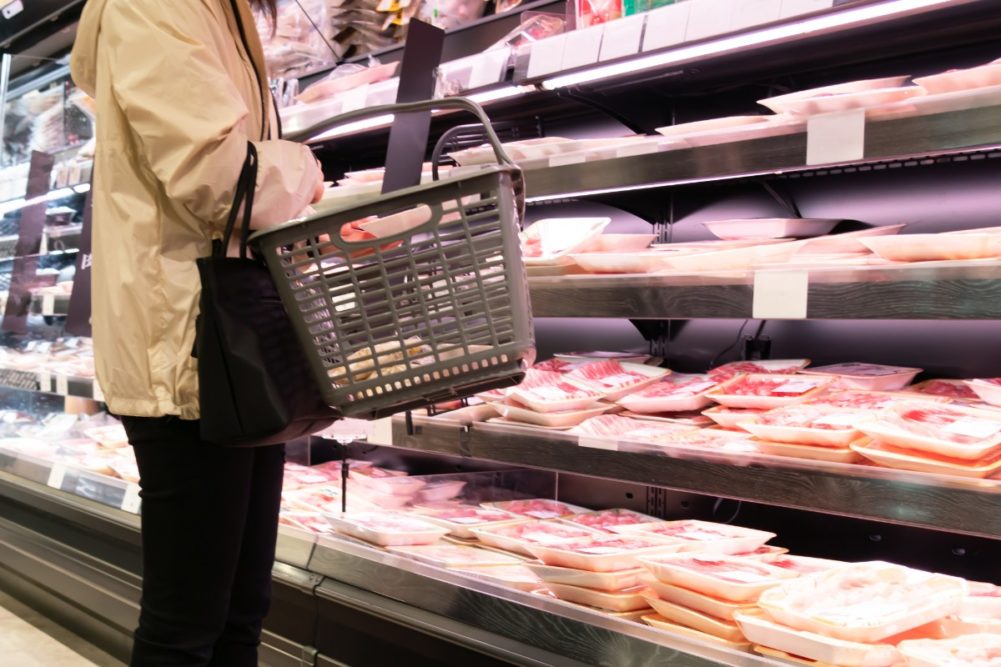WASHINGTON – In a Sept. 14 letter to Secretary of Agriculture Tom Vilsack, the North American Meat Institute (NAMI) responded to comments Vilsack made in a Sept. 8 press conference implying that rising prices for meat and poultry products were due to consolidation in the industry and the dominance of four companies that control most of the US supply chain for the beef, pork and poultry.
NAMI said Vilsack’s efforts to “scapegoat the meat and poultry industry” to explain the inflation-induced prices for products is not helpful to consumers.
During the press briefing that NAMI referenced, Brian Deese, director of the National Economic Council, pointed out that between 55% and 85% of the meat and poultry market is controlled by four companies, which Vilsack said included Tyson Foods Inc. and JBS SA.
“And so when you see that level of consolidation and the increase in prices, it raises a concern about pandemic profiteering — about companies that are driving price increases in a way that hurts consumers who are going to the grocery store, and also isn’t benefitting the actual producers — the farmers and the ranchers — that are growing — are growing the product,” Deese said.
Vilsack added to Deese’s comments saying there are clear discrepancies between the profitability of livestock producers versus that of the processors and packers.
“And the reality is today that farmers are losing money on cattle, on hogs, and poultry that they’re selling, at a time when consumers are seeing higher prices at the grocery store and, as Brian alluded to, the fact that there are now record profits or near-record profits for those in the middle,” Vilsack said.
Julie Anna Potts, NAMI president and chief executive officer, said Vilsack ignored the impact the pandemic and the labor shortage has had on prices of meat and poultry, and the plan to address the structure of the industry doesn’t address the more immediate problem of helping consumers pay for more expensive groceries.
“The Administration cannot ignore the fundamental principles of supply and demand,” Potts said.
In the letter to Vilsack, Potts outlined the industry’s challenges faced since the pandemic and the unprecedented consumer demand for its products, which she said were not highlighted in the press briefing.
“I was surprised to hear you allege the structure of the meat and poultry industry is causing price inflation for meat and poultry products,” Potts said, “and disappointed that you failed to acknowledge the array of market forces affecting retail prices.”
The letter went on to reference the US Department of Agriculture’s own data and explanation for rising prices, which flew in the face of the premise presented by Vilsack on Sept. 8.
“At the press conference, you alleged industry structure caused retail price inflation for meat and poultry products,” Potts wrote. “Yet in a recent report on food prices, the US Department of Agriculture’s (USDA) Economic Research Service (ERS) examined beef, pork and poultry prices, and never identified industry structure as a price driver.”
The letter added that factors contributing to higher wholesale beef and dairy prices included higher feed costs, increased demand and shifts in the supply chain.
Potts went on to spell out other ERS data that help explain higher-priced food, none of which were related to the industry’s structure. Additionally, during recent meetings between NAMI staff and government officials about supply chain issues and maintaining competitiveness in the industry, Potts wrote that consolidation and a top-heavy structure of the industry was never discussed.
“Over the past three months, Meat Institute staff have met with the White House Supply Chain Task Force, USDA’s Senior Advisor for Fair and Competitive Markets, and USDA’s Office of the Chief Economist,” Potts wrote. “All were substantive discussions about the meat and poultry industry, but not once in any meeting did White House or USDA staff suggest consumer prices were rising because of industry structure. Similarly, prior to the press briefing, no White House or USDA staff contacted the regulated industry to raise concerns or discuss the issue.
“For an issue the White House deemed sufficiently significant to warrant discussion during an entire press briefing, somebody within the Biden administration should have engaged with the industry.”
Check out our meat & poultry page for more industry news.

